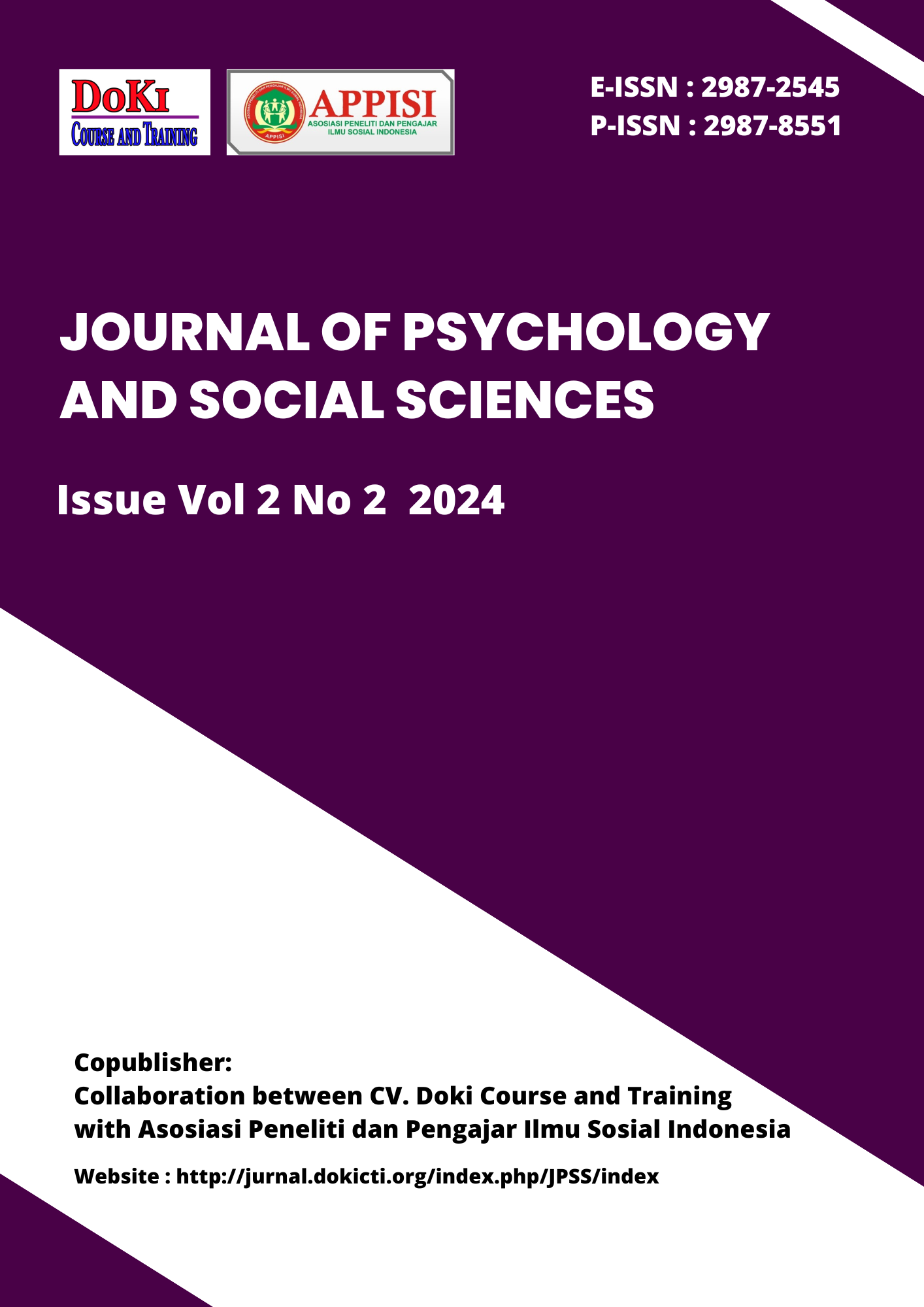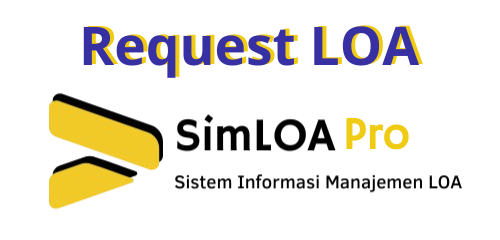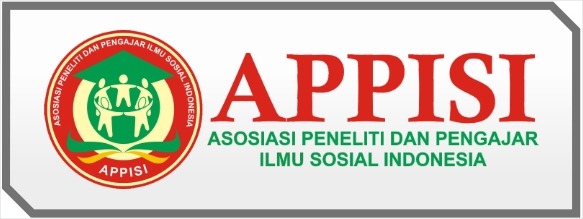Differences in Self-Awareness of Students Who Attend Islamic and General Bases
DOI:
https://doi.org/10.61994/jpss.v2i2.79Keywords:
Self Awareness, StudentAbstract
The study aimed to find the relationship between the self-awareness of psychology students at Raden Fatah Islamic University and Sriwijaya University, Palembang. Self-awareness can be interpreted as a person's ability to understand deeply, including strengths, weaknesses, values, and feelings. The method used is quantitative with a comparative research type by collecting data using a questionnaire, then there is an independent sample T-test. The self-awareness scale is presented in the form of a Likert scale, which is distributed through a questionnaire with four response options: Very Unsuitable (STS), Not Appropriate (TS), Appropriate (S), and Very Appropriate (SS). Favorable statement items are assessed as follows: STS is given a score of 1, TS is given a score of 2, S is given a score of 3, and SS is given a score of 4. Meanwhile, the value of unfavorable statements is given the opposite value. The research results show that the overall population data of respondents consisted of N = 50, consisting of N = 25 Sriwijaya University and N = 25 UIN Raden Fatah Palembang. Sriwijaya University mean value = 77.92, std. Deviation = 4.73392, std. Error Mean = 0.946788. Raden Fatah State Islamic University Palembang mean value = 79.72, std. Deviation = 6.90724, std. Error Mean = 1.38145. sig. value (2-tailed) = 0.288, while research = 5% or 0.05 means (0.288 > 0.05) it can be concluded that this study accepts H0 and rejects Ha. It can be concluded that there is no significant difference in self-aswers on Character Building in Students at Raden Fatah State Islamic University and Sriwijaya University Palembang.
References
Agusta, YN (2014). The Relationship Between Future Orientation and Fighting Power Against Work Readiness in Final Year Students of the Faculty of Social and Political Sciences at Mulawarman University. Psikoborneo: Scientific Journal of Psychology , 2 (3), 133–140. https://doi.org/10.30872/psikoborneo.v2i3.3653
Akbar, MYA, Amalia, RM, & Fitriah, I. (2018). The Relationship between Religiosity and Self Awareness of UAI Islamic Counseling Study Program Students. JURNAL Al-AZHAR INDONESIA SERIES HUMANIORA , 4 (4), 265. https://doi.org/10.36722/sh.v4i4.304
Putra, AP, Mujanah, S., & Susanti, N. (2022). The Influence of Self Awareness, Work Ethic, Resilience, on Organizational Citizenship Behavior (Ocb) and Education Personnel Performance in Private Universities in Surabaya. Media Mahardhika , 20 (2), 311–321. https://doi.org/10.29062/mahardika.v20i2.397
Sihaloho, RP (2019). The Relationship Between Self Awareness And Deindividuation In Students Doing Hate Speech. Scientific Journal of Mandala Education , 5 (2), 114. https://doi.org/10.58258/jime.v5i2.795
Nihwan , M., Mansur, M., Mukhlis , & Hendriyanto , B. (2022, January ). Awareness Self In Effort Formation Character Santri Rayon KH Ahmad Basyir As Pp. Annuqayah Latee . Journal Studies Islamic Education , 5 , 68-68.
Sihaloho, R. P. (2019). Hubungan Antara Self Awareness Dengan Deindividuasi Pada Mahasiswa Pelaku Hate Speech. Jurnal Ilmiah Mandala Education, 5(2), 114. https://doi.org/10.58258/jime.v5i2.795
Taneja, S., & Ahmed, R. (2019). Emotional Intelligence and self-awareness among college students: A correlational study. Indian Journal of Positive Psychology, 10(1), 50-55.
World Health Organization. (2020). Addressing mental health needs: An advocacy guide for international student organizations. Geneva, Switzerland:
Downloads
Published
Issue
Section
License
Copyright (c) 2024 Siti Khosiyah , Triana Malenita Dewi, Masayu Alifah Saznabillah, Aisyah Rizky Faradila, Idup Sapitri, Mahesa Belanti

This work is licensed under a Creative Commons Attribution-ShareAlike 4.0 International License.















